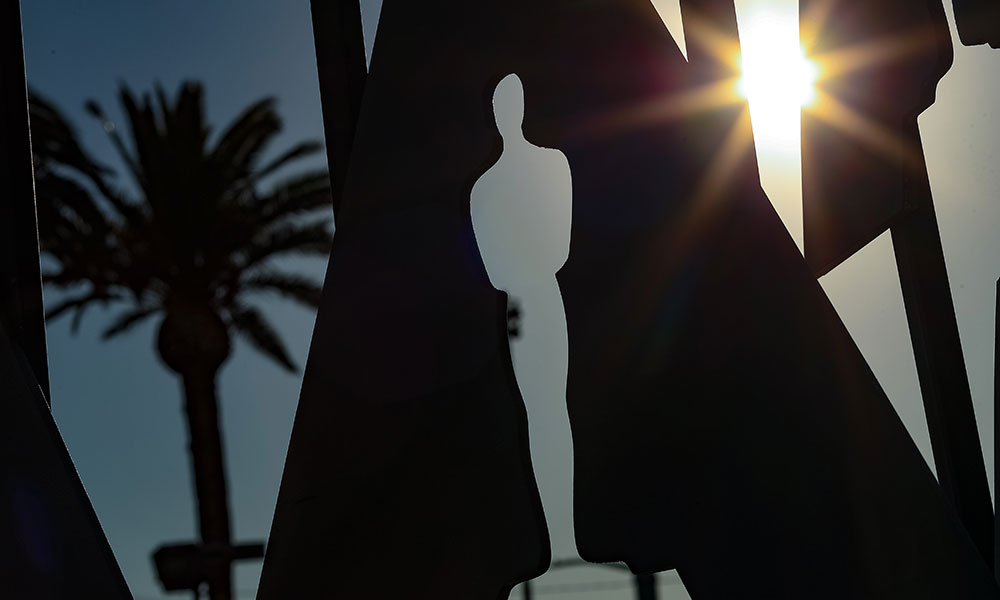When the Academy Awards offered a second straight year of all-white nominees in 2016, Twitter users seized the #OscarsSoWhite hashtag to highlight the narrowness of the honors being distributed. It was a move that contributed to the Academy of Motion Picture Arts and Sciences’ recent efforts to overhaul its voting membership.
Sharon Willis, a member of Rochester’s Film and Media Studies program faculty, says this year’s Oscar nominations show that change may be afoot in Hollywood—but that how much movies will be transformed remains to be seen.
Willis—a professor of art and art history, as well as of visual and cultural studies—is the author of The Poitier Effect (University of Minnesota Press, 2015), an examination of actor Sidney Poitier’s film career and race relations from the civil rights era to the present. She also published High Contrast: Race and Gender in Contemporary Hollywood Film (Duke University Press, 1997).
How can the awards contribute to increasing racial and gender equality in films?
I think so much depends—still—on money. This is why the financial success of Get Out [a horror movie about racism that broke box office records when it was released in early 2017] is really important.
I’m a little optimistic—I hope not foolishly—about women in film, especially older ones. This year, we see middle-aged women—mostly white, it’s true—in really gripping roles that are de-glamorized, for the most part: Laurie Metcalfe in Lady Bird, Frances McDormand in Three Billboards Outside Ebbing, Missouri, and Allison Janney in I, Tonya. This seems like progress—these characters aren’t nice, and they aren’t prettified.
I wish Mary J. Blige had had more to do in Mudbound, and that the film and its director, Dee Rees, had gotten more attention. I don’t think we’ve seen a film that placed a black family and a white one alongside each other in quite this way before.
Are there films that take audiences outside the “white narrator’s point of view” that you wrote about in The Poitier Effect?
It’s the genius of Get Out that it grabs its viewer right from the beginning. It recruits us into alignment with Chris [the protagonist, a young African American played by Daniel Kaluuya] as he anxiously navigates a white, suburban neighborhood. We’re quickly recruited into a position of high anxiety about white people and their property. And that does not abate. We endure psychic torment along with Chris, and I think that’s eye opening.
Director Jordan Peele has quipped that his film is a remake, as a horror movie, of 1967’s Guess Who’s Coming to Dinner, starring Sidney Poitier. But [social critic and novelist] James Baldwin already saw the original film as a horror movie, in effect.
What do you do when you’re watching a movie to think critically about its point of view?
I like to pay attention to the point of view that the camera invites me to occupy. So I look closely to see whose point of view is visually privileged.
I also pay attention to the ways editing moves us from one scene to another, or breaks up a given scene. I think about what kinds of space it gives characters to occupy, how it frames them in relation to each other, and how it adjusts focus to privilege some figures over others.
When it comes to sound, I try to track interferences from sound or noise, and I pay attention to moments when I feel that music is trying to lure me or force me emotionally. Music that doesn’t belong to the world of the fiction often helps to paper over some cracks in the narrative texture.
Who are you pulling for at this year’s awards?
I’m delighted for Jordan Peele, and I really hope that he and his film win in every category for which they are nominated.
I would really, really love to see Frances McDormand win Best Actress. She’s one of the bravest actors I can think of—she’s made a career out of refusing vanity and playing extraordinarily forceful, if often unlikeable, characters.
And this year, as in most years, I find myself wishing that all the Supporting Actress nominees could win. Older white women and black women of all ages often land in this category. It’s really packed with talent.




